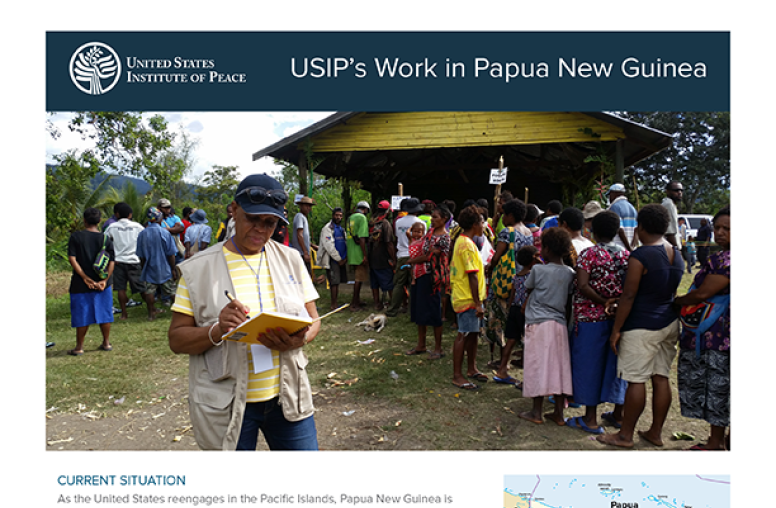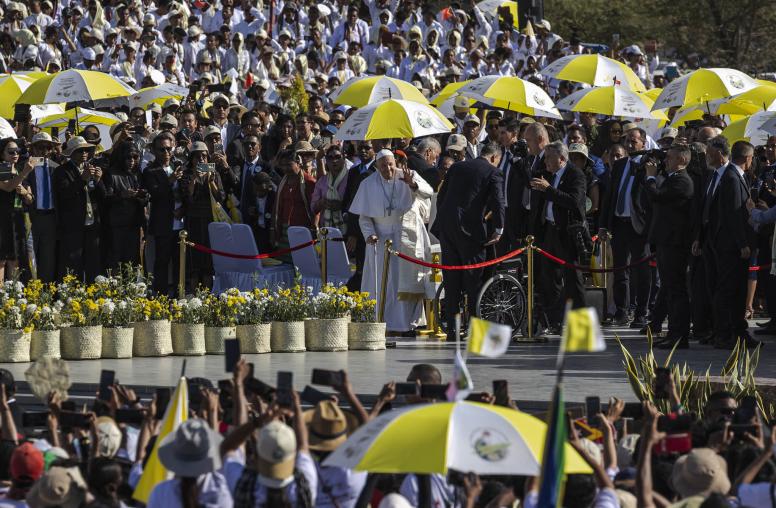Examining Conflict Dynamics in Papua New Guinea
About the Paper
In 2022, Papua New Guinea was designated as one of five priority countries or regions under the U.S. Strategy to Prevent Conflict and Promote Stability. USIP assembled a study group of senior officials and scholars to provide input on the guiding principles for a strategy to support US efforts to increase stability in the country. The resulting papers cover the two provinces identified as geographic areas of U.S. focus in the strategy, as well as three thematic areas of focus. The two geographically-focused papers cover coastal Morobe Province, the country’s largest province by population and Papua New Guinea’s industrial heart, and Hela Province, located in the Highlands and home to the country’s largest resource project. The remaining three papers concentrate on thematic areas of tackling the scourge of intimate partner violence, reckoning with the effects of climate change, and meaningfully conducting “consultation.” The authors explore the mosaic of issues in distinctive ways, reflecting their unique vantage points and perspectives.
About the Authors
John Cox, senior research associate, School of Social and Political Science, University of Melbourne
Melissa Demian, senior lecturer, Department of Social Anthropology, University of St Andrews
Miranda Forsyth, professor, College of Asia and the Pacific, Australian National University
Joshua Goa, lecturer, School of Humanities and Social Sciences, University of Papua New Guinea
Dennis Kuiai, acting director for police and corrective services, Autonomous Bougainville Government
Dora Kuir-Ayius, senior lecturer, School of Humanities and Social Sciences, University of Papua New Guinea
Dunstan Lawihin, lecturer, School of Humanities and Social Sciences, University of Papua New Guinea
Michael Main, visiting scholar, College of Asia and the Pacific, Australian National University
Nayahamui Rooney, research fellow, Crawford School of Public Policy, Australian National University
Almah Tararia, PhD candidate, Coral Bell School of Asia Pacific Affairs, Australian National University
Zuabe Tinning, program manager, Papua New Guinea, United States Institute of Peace
Gordon Peake (editor), senior advisor, Asia Center, United States Institute of Peace
This research was funded by USIP’s Asia Center, which is solely responsible for the accuracy and thoroughness of the content. The views expressed in this discussion paper are those of the authors alone and do not necessarily reflect the views of the United States Institute of Peace.



